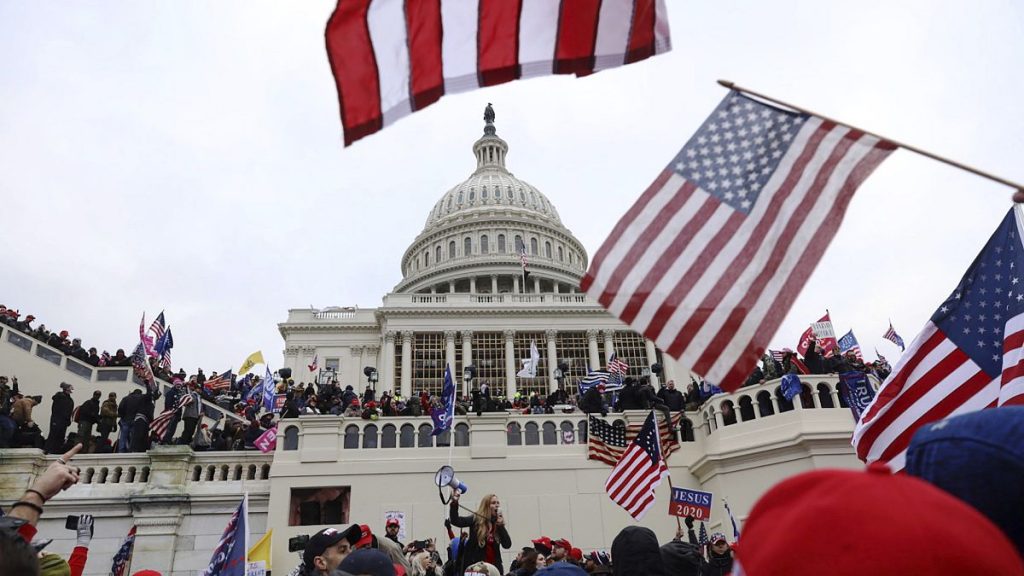The fourth anniversary of the January 6th Capitol attack is overshadowed by the looming possibility of pardons from then President-elect Donald Trump for many of the over 1,500 individuals charged with crimes related to the riot. Trump’s campaign promise to pardon rioters on his first day in office, with few exceptions for those deemed “radical” or “crazy,” has sparked controversy and reignited debate surrounding the events of that day. This promise has created a stark contrast to the solemn remembrance of the attack and the ongoing legal proceedings against those involved.
The potential pardons have exposed deep divisions within the Republican party. While some, like Representative Marjorie Taylor Greene, advocate for blanket pardons for all participants, others adopt a more cautious approach. Figures like Representative Jim Jordan support pardons for non-violent offenders but express reservations about those who engaged in violence against law enforcement. This internal discord reflects the ongoing struggle within the Republican party to reconcile support for Trump with the gravity of the January 6th events. The debate highlights the complex legal and ethical considerations surrounding the use of presidential pardons in such a politically charged context.
Over 1,250 individuals have pleaded guilty or been convicted in connection with the Capitol breach, with sentences ranging from a few days to 22 years. Many of those involved embraced Trump’s false claims of election fraud, and some specifically targeted prominent politicians like then-House Speaker Nancy Pelosi and then-Vice President Mike Pence. The attack resulted in injuries to approximately 140 police officers, making it potentially the largest single-day assault on law enforcement in US history. This violence underscores the serious nature of the crimes committed and adds another layer of complexity to the pardon debate.
The prospect of pardons has drawn strong criticism from law enforcement, particularly from officers who defended the Capitol against the mob. Many officers sustained injuries, some inflicted with their own weapons, while attempting to contain the rioters. Sergeant Aquilino Gonell, a Capitol Police officer who retired due to injuries sustained during the attack, exemplifies the sentiment of betrayal felt by law enforcement, arguing that pardoning those who assaulted officers is incompatible with supporting law enforcement and the rule of law. This sentiment highlights the potential damage to public trust in law enforcement and the justice system if pardons are granted.
Democrats, who led the impeachment efforts against Trump and conducted an extensive investigation into the attack, warn of the broader implications of pardons for the rule of law and national security. They emphasize the convictions of members of extremist groups like the Oath Keepers and Proud Boys for seditious conspiracy and other crimes, arguing that pardons could embolden similar groups and undermine efforts to combat extremism. Furthermore, they contend that pardons without accountability or remorse could set a dangerous precedent, potentially encouraging future acts of political violence.
The potential pardons evoke strong emotional responses from lawmakers who were present during the attack. Many narrowly escaped the mob and harbor deep personal experiences with the individuals now facing potential pardons. Representative Jim Himes, who was trapped in the House gallery as rioters attempted to breach it, articulates the difficulty of accepting pardons for those who posed a direct threat to him and his colleagues. This personal dimension underscores the lasting impact of the January 6th events on those who witnessed them firsthand and the challenges of achieving reconciliation and moving forward. The debate surrounding the pardons serves as a stark reminder of the fragility of democratic institutions and the ongoing struggle to uphold the rule of law in the face of political polarization and extremism.














